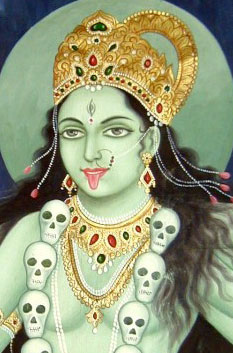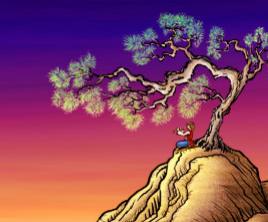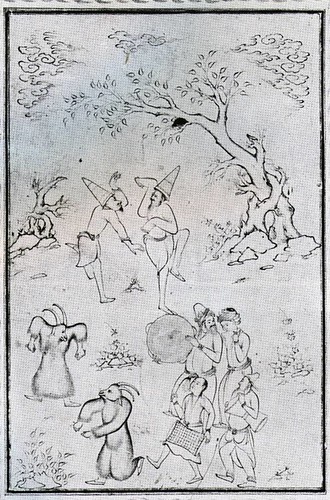If I bring you to mind, you're there in my thoughts.
If I open my mouth, you're there on my lips.
If I'm happy, you're the secret to it.
If I need cunning, you'll teach me to do it.
#1992: From Rumi's Kolliyaat-e Shams-e Tabrizi
Search word:
mindLast night I watched on DVD Jane Campion's film about Janet Frame,
An Angel at My Table. It is inspiring to follow the story of someone who had such a gift and succeeded in bringing it to fruit. If I have any such gift, it concerns the mind more than the heart that poets sing from. Mystics often put down the mind or intellect, more to point out limitations than to denigrate. Rumi is not hard on the mind in this verse.
I have a standard résumé that I send to prospective employers and I am ever confident that they will not respond. It is bland, it is "as it should be", it is definitely not the truth. I have a more private résumé that does try to tell it like it is. In it, I have a small poor-quality webcam photo of Madam (jan2000-dec2003) at a moment when she was ready to leap on an imaginary prey. It is under the section called "Gifts & Talents" and comes with the caption:
I'm like a cat. I walk by myself. I'm curious...
I'm ready to POUNCE!
(This tells you more about me than all the crap that follows.)
It's no wonder that I mourn the loss of my cat so much for I identify my gifts and talents with her. I must believe that she still lives. I cannot live myself unless I do. I must make that effort for it doesn't come easy to the rational mind.
When I read through today's verse from Rumi, I can say: Yes, when I think of Madam, she is right there in my thoughts, she feels as present as ever and perhaps even more so. Yes, when I speak, she is there behind my words, she informs my every true word. Yes, when I sing or dance with joy, it's as if I'm holding her in my arms as I once did. Our new cat hates being held. She's affectionate and a great one for purring but she struggles as soon as she is picked up. As if to tell us quite emphatically that she is no Madam, no, she is herself and that alone.
It is when I come to Rumi's fourth line that I stop, puzzled. No, this one does not fit. Madam was vulnerable, she died. She lacked cunning, she was all instinct. How can she teach me to be cunning or clever now?
But then I feel a resonance with Janet Frame's story as re-told by Jane Campion. The writer herself was so vulnerable. She seemed to have no skills at all in living in the world and she spent many painful years in psychiatric institutions. She was clueless about almost everything else except about writing. I guess Madam was clueless about everything else except being Madam.
Every gift comes with a curse. In my case, I have a strong intellect, a mind that readily analyzes, dissects, tears apart, ruthlessly searches out the inconsistency or the logical fallacy. I see human faults and failings with great clarity, my own unfortunately included. If anything gets past me, it must be clean.
If I tame this tiger down to a domestic puss, what's left? Something that is a joy to live with, with just a seed of wildness in it. Something less distinctive but less scary. Ah, Madam, you were good enough, quite quite good enough.

























